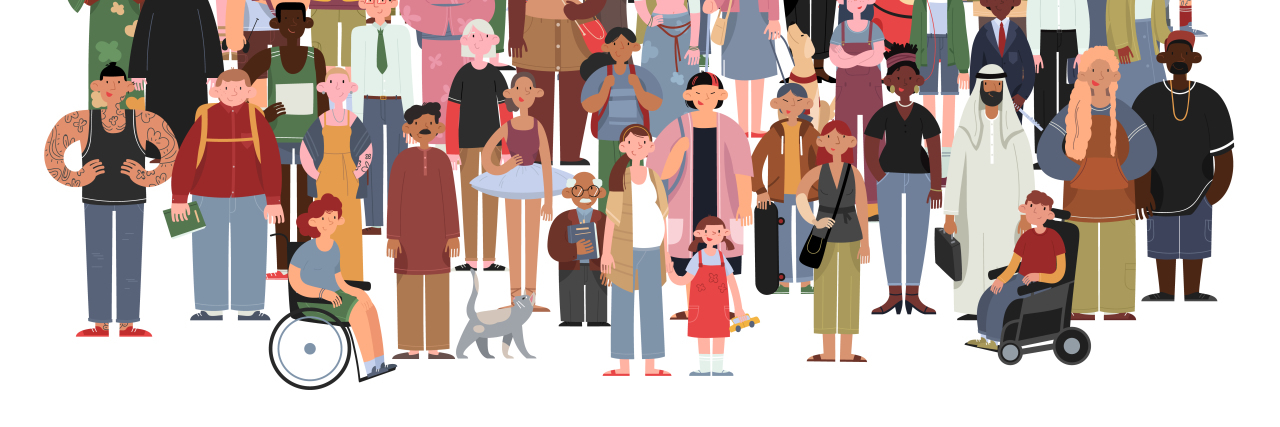The disability community is full of amazing self-advocates, families and allies. My family considers this community a gift. We have met so many incredible souls, with and without disabilities, that we would not have met if we were not a family who has a child with a significant disability. Our daughter is 19 and has Down syndrome.
Along the journey, I have noticed that all too often this wonderful group of people divides themselves by disability. They exist in silos. There are numerous groups for specific disabilities. People with physical disabilities are often separate from those with cognitive disabilities. Some people with hidden disabilities want to be separated from everyone with disabilities because they can blend in easier. This separation occurs in groups joined both in person or online. It occurs in socialization. It occurs in advocacy efforts. And it often occurs in school, where some students are segregated while others are included.
People with disabilities, and the world as a whole, would be far better off with much more collaboration and consolidation. Why?
1. We are a richer and more diverse fabric when woven together in life’s blanket of humanity.
We can learn so much from each other, encourage each other, and advocate for each other. My daughter has friends with autism, ADD and Down syndrome mixed in with her friends who do not have disabilities. They are far more alike than different.
2. There is one pot of money from the government for our schools, government programs, etc.
One pot. It seems much more efficient to divide that pot fewer ways. The clearest examples of this are our school systems. When states are stretched to the maximum, because the federal government has never paid their promised share of IDEA, building separate schools for certain disabilities (usually autism) is a very expensive proposition. Those millions of dollars are taken away from all the public schools that remain and are often struggling to properly support best practices, which is usually inclusion for all students.
3. We need each other! We really do.
When people with numerous types of disabilities advocate for an issue in Washington, D.C., the impact is far more powerful than just one specific disability category doing the same thing. When parents of children with many types of disabilities advocate for inclusion with their school district, they will have far greater numbers and effectiveness. This holds true across the board.
4. Socially we need each other even more.
Parents need to network with other parents, and the more diverse that network is, the better. Self-advocates need friends with and without disabilities. If one is fully included in their school, they often do not see the students in segregated settings, and interact with very few peers with disabilities in their classes. As dating becomes more of an issue, meeting others with disabilities is often important, as there are smaller dating pools. Saying this, I recognize that someone with a disability can, of course, date or marry someone without a disability. But for many significant disabilities, the likelihood of that happening is very slim.
5. It is 2020. This is a time when many specific disability groups collaborate with each other.
That is so encouraging. I understand why many disability groups are necessary, and very impactful. Certain disability categories have specific priorities for education, progress and dissemination. The circles of commonalities overlap, like a Venn Diagram, and that’s when huge steps of progress can be made.
6. We cannot forget that approximately 25 percent of the population has a disability.
When you look at the ripple effects of that, estimates are that 75 percent of people have close contact with someone with a disability. Just think of what 75 percent of us could do collaboratively! Let’s all work towards that goal. Make sure our children have friends with various disabilities and no disabilities. Make sure our places of worship and social gatherings include all kinds of people. Make sure our sporting teams are made up of a diverse fabric of abilities, ethnicities, genders, and all characteristics that made humans so unique. Make sure our workplaces show all kinds of talent — not just those with one disability, or various disabilities, but an honest mix of people with and without disabilities.
Fewer silos equal a kinder, gentler, more honest and more productive world.
Getty image by vector_s

